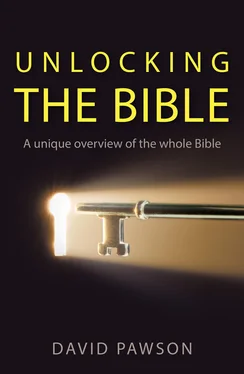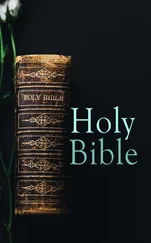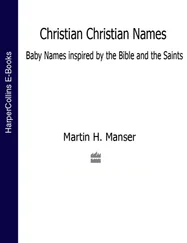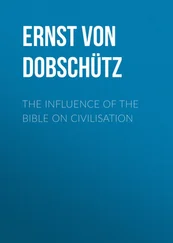2. Cleanliness
As well as being carefully arranged, the camp had to be spotlessly clean, for these were ‘God’s people’. Even such things as the sewage arrangements were carefully detailed. They were told to take a spade when emptying their bowels so that they could keep the camp clean for the Lord. He was not just concerned with germs. God was interested in a ‘clean’ camp because he is a ‘clean’ God. The principle still holds today. A dirty, uncared-for church building is an insult to God.
Not only was the camp to be clean, we are also told of the cleansing of the people before they left Sinai.
There are further details of purification rites in Chapter 19. Death is an unclean thing. God is a God of life, so there was to be no taint of death in the camp. There was even a ‘jealousy test’ for adulterous wives. Even if there were no witnesses, God sees what happens and will punish the evildoer. This is his camp.
The expression ‘cleanliness is next to Godliness’ has some considerable support from the book of Numbers!
3. Costliness
SACRIFICES AND OFFERINGS
It is costly for a sinful person to live close to a holy God. Sacrifices were offered on behalf of the people on a daily, weekly and monthly basis. There were literally hundreds. Each sacrifice had to be costly – only the best animals were offered.
The daily sacrifice, weekly sacrifice and a special monthly sacrifice made it clear it was a costly matter to receive forgiveness from God. Blood had to be shed.
PRIESTHOOD
Furthermore, the priesthood had to be supported by means of offerings. The Levites were consecrated for service before they left Sinai. Some 8,580 served (out of the 22,000 in the tribe) and both priests and Levites were dependent on the other tribes for their financial support.
The upkeep of the priesthood, plus the regular sacrifices, therefore made up a considerable ‘cost’ to the people.
This teaches us that we still need to be very careful today about how we approach God. I may not need to bring a ram, pigeon or dove to be sacrificed when I come to God, but that does not mean I do not have to bring a sacrifice at all. There is as much sacrifice in the New Testament as in the Old. We read of the sacrifice of praise and the sacrifice of thanksgiving, for example. We need to ask ourselves whether we do make sacrifices to God. We too should prepare for worship.
Numbers also tells us about the Nazirite vow, a voluntary vow of dedication and devotion to God, although not part of the priesthood. The Nazirites vowed not cut their hair, not to touch alcohol (both were contrary to the social custom of the day) and not to touch a dead body. Some of these vows were temporary, others were for life. Samuel and Samson are the best-known Nazirites in Scripture. By the time of Amos the practice was ridiculed.
WHAT CAN WE LEARN FROM THIS?
Today there is a tendency towards an anti-ritual, casual approach to worship, forgetting that God is exactly the same today as he was then. We too are to approach him with awe and dignity. Hebrews reminds us that he is a consuming fire.
In the New Testament we read of how those gathered for worship may bring a song, a word, a prophecy, a tongue, an interpretation. This is the New Testament equivalent of preparing, approaching God in the right frame of mind.
Numbers also reminds us that we must worship God according to his taste and not ours. Modern worship tends to focus on the preferences of individuals, whether this be in favour of hymns or choruses, for example. We can forget that our preferences are quite irrelevant compared to the importance of making sure that our worship matches what God wants.
Our sacrifices of praise and giving are also mentioned in the New Testament: ‘They [your gifts] are a fragrant offering, an acceptable sacrifice, pleasing to God.’ In Leviticus and Numbers God loved the smell of roast lamb. In the same way, our sacrifice of praise can also be pleasing to God today.
Narrative
In turning to the narrative parts of Numbers, we move from the divine word to human deeds – from what the people should do to what they did do. It is a sad and sordid story. The wilderness becomes a testing ground for them. They are out of Egypt but not in the Promised Land, and this limbo existence is very hard for them to endure.
We need to remember that the people are now in a covenant relationship with God. He has bound himself to them. He will bless their obedience and punish their disobedience. The same acts of sin are committed in Exodus 16–19 as in Numbers 10–14, but only in Numbers is the law violated, so only in Numbers do the sanctions apply.
God’s law can help you see what is right (and wrong), but it cannot help you do what is right. The law did not change their behaviour: it brought guilt, condemnation and punishment. This is why the law given on the first Pentecost day was inadequate and later needed the Spirit to be given on that same day. Without supernatural help we would never be able to keep the law.
Leaders
We will look first at the leaders of the nation and see how they tried and failed to live up to the law. They are all from one family, two brothers and a sister – Moses, Aaron and Miriam (the Hebrew version of the name Mary). We are told their good points and their strengths of character as well as their weaknesses.
STRENGTHS
Moses
Moses is the dominant figure throughout the book. In many respects he was a prophet, a priest and a king.
We have seen already how other prophets were given visions and dreams, but Moses spoke face to face with God in the tabernacle. He was even allowed to see a part of God – he saw his ‘back’.
He also acted in the role of priest. There are five occasions when he interceded with God. Indeed, on occasions he was quite bold in the way he prayed for the people and urged God to be true to himself.
He was never called ‘king’, and of course this was some centuries before the monarchy was established, but he led the people into battle and ruled over them, and so functioned as a king, even if the title was not used.
One of the most notable things about Moses was that when he was criticized, badly treated or betrayed he never tried to defend himself. Writing about himself, he says he was the meekest of all the men on the earth – a hard thing to say if you want it to remain true! Of course, Moses was saying no more than Jesus when he said we should learn from him for he was meek and humble. Moses let the Lord defend him. Meekness is not weakness, but it does mean not trying to defend yourself.
Aaron
Aaron was Moses’ brother, assigned to Moses as his ‘spokesman’ when Moses had to face the Pharaoh in Egypt. He too was a prophet. He was also designated to be a priest, the chief priest. The Aaronic priesthood became the heart of the worship and ritual of the ancient people of God.
Miriam
Miriam was Moses’ and Aaron’s sister. She was known as a prophetess. She sang and danced with joy when the Egyptians were drowned in the sea.
So we have Moses as prophet, priest and king, Aaron as prophet and priest, and Miriam as prophetess. Note that the gifts are shared and that prophecy is a ministry for women as well as for men. Miriam’s particular prophetic gift was expressed in song. There is a very direct link between prophecy and music. In later years King David chose choirmasters who were also prophets, and Ezekiel would often request music as a preparation for his prophesying. It seems that there is something about the right kind of music which releases the prophetic spirit.
Despite their strengths and gifts, however, each of these leaders failed in some way. It is instructive for us to examine their failings in detail.
WEAKNESSES
Miriam
Читать дальше











